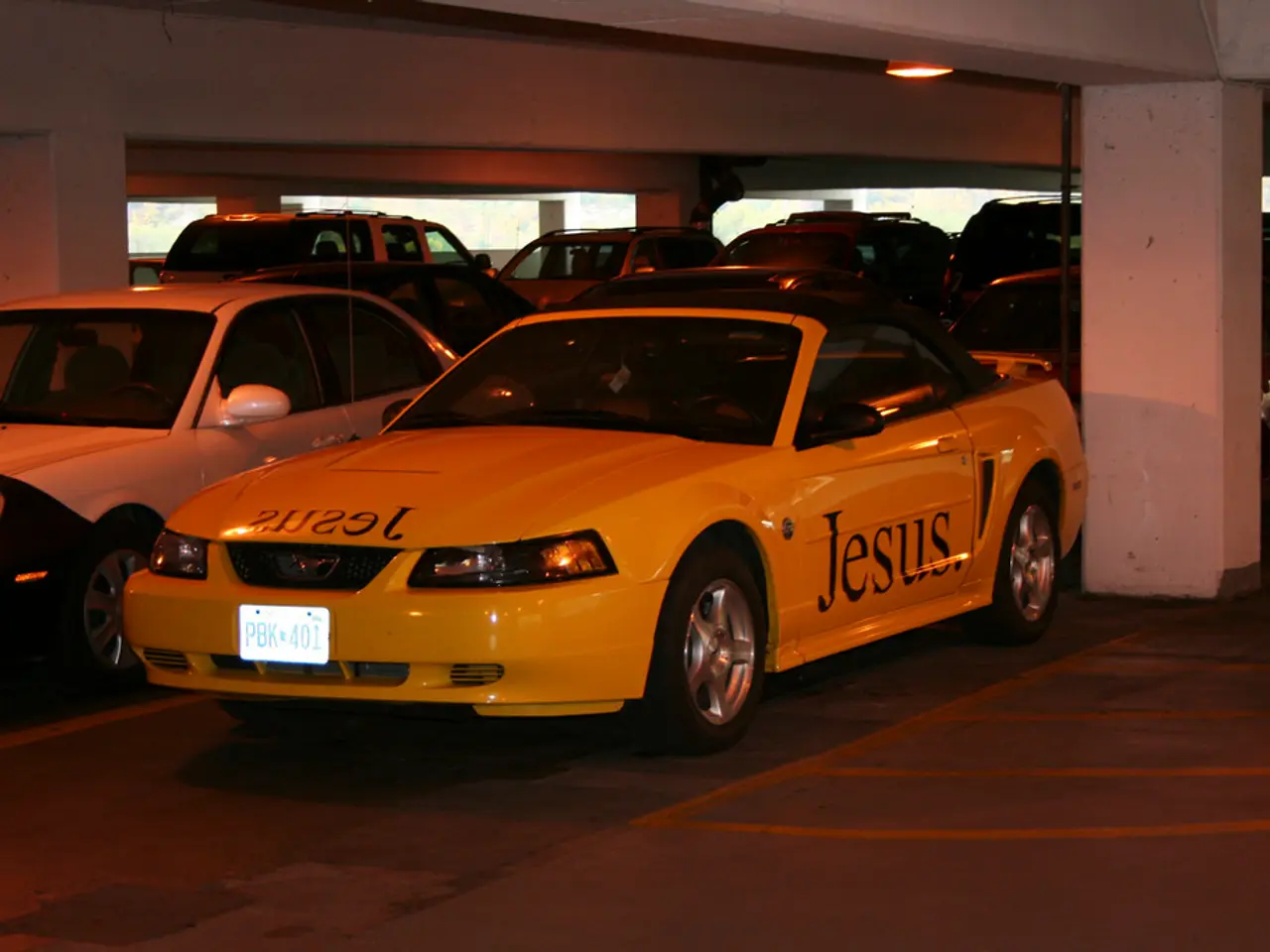Deterioration continues unabated
In the bustling city of Wuppertal, a significant increase in private car ownership has led to a growing parking conundrum, particularly in residential areas. Between 2020 and 2025, the number of private cars increased by a substantial 4,139, contributing to the city's parking woes [1].
This escalating car usage, coupled with the misuse of public spaces for parking, has resulted in streets becoming increasingly congested. Residential parking shortages are a common issue, exacerbated by non-resident parking, improper use of allocated spaces, and inefficient management [2].
In a letter to the editor, Dirk Schönwetter expressed his concern over the situation, suggesting that making residential parking more expensive could encourage the construction of parking garages [3]. However, on-street parking in Wuppertal is currently too cheap, discouraging investors from building parking garages [4].
The search for a parking spot in 2020 emitted 900,000 tons of CO2 into the air, highlighting the environmental impact of the parking problem [5]. The misuse of parking spaces not only compounds residential parking shortages but also reduces the quality of life in neighbourhoods.
To address these issues, several solutions have been proposed. These include reforming parking regulations to manage demand better, encouraging alternative transport modes, implementing transportation demand management strategies, promoting compact, mixed-use urban development, and building more parking garages, even in residential areas [1][2][4].
While specific data on Wuppertal’s parking misuse is not readily available, these principles and strategies can be adapted locally to tackle the increasing private car ownership challenge and associated parking problems in Wuppertal’s residential areas.
In a related development, recent investigations in Cologne's Agnesviertel showed that 70% of all parked cars could be parked immediately on private parking spaces and in backyards [6]. This finding underscores the potential for more efficient use of existing parking spaces to alleviate the parking problem in large cities like Wuppertal.
On average, the German driver spent 41 hours per year searching for a parking spot in 2020 [5]. As Wuppertal continues to grapple with its parking issues, it is crucial to explore innovative solutions and collaborate with sustainable initiatives such as the Circular Valley Forum to find long-term, effective solutions [7].
[1] Reforming parking regulations: https://www.example.com/parking-regulations [2] Encouraging alternative transport modes: https://www.example.com/alternative-transport [4] Transportation demand management strategies: https://www.example.com/tdm-strategies [5] General notes page on publication: https://www.example.com/general-notes [6] Investigations in Cologne's Agnesviertel: https://www.example.com/colegne-investigations [7] Circular Valley Forum: https://www.circularvalley.de/en/home/
- The growing parking conundrum in Wuppertal, due in part to increasing private car ownership, raises concerns in the realm of environmental science, as the search for a parking spot in 2020 emitted 900,000 tons of CO2 into the air.
- To mitigate the impact of climate-change and address the parking problem, solutions have been proposed, such as implementing transportation demand management strategies, promoting compact, mixed-use urban development, and even building parking garages in residential areas.
- In a related effort, analyzes in Cologne's Agnesviertel revealed that 70% of all parked cars could be parked immediately on private parking spaces and in backyards, indicating a means to alleviate the parking problem in cities like Wuppertal through more efficient use of existing spaces.
- As finance and business sectors continue to be influential in shaping urban landscapes, collaborations between cities like Wuppertal and sustainable initiatives like the Circular Valley Forum can facilitate the exploration of innovative solutions towards long-term, effective responses to the increasing private car ownership challenge and associated parking problems in residential areas.




